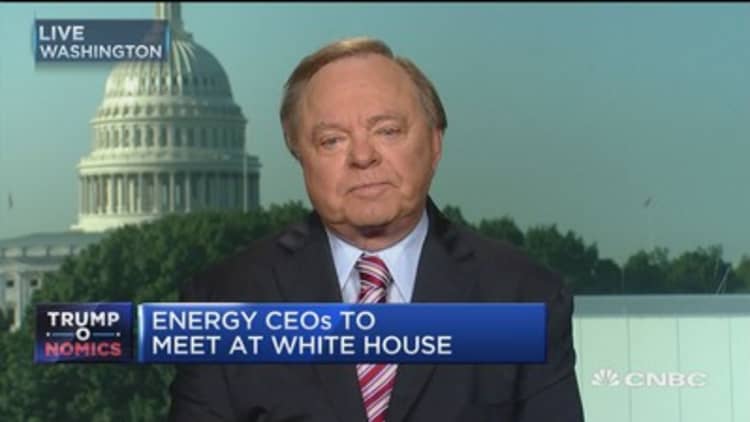
U.S. shale oil pioneer Harold Hamm on Wednesday warned that sub-$40 crude would cause many U.S. producers to stop drilling and warned fellow CEOs to exercise discipline.
U.S. crude prices have plunged nearly 18 percent this year, giving up the gains they accrued after OPEC and other exporters agreed to reduce output last winter. The cuts aim to shrink global crude stockpiles and support prices, but rising production in the United States and elsewhere has made that effort harder.
On Wednesday, U.S. crude traded at about $44 a barrel.
"This price ... is not sustainable," Hamm, CEO and chairman of Continental Resources, told CNBC's "Squawk Box." "It needs to be north of $50 for sure to be sustainable in the world."
Asked about the prospect of oil prices dipping into the $30 to $40 a barrel range, Hamm said that would force drillers to reduce capital expenditures and stop drilling new wells, causing output to dry up and leaving the market undersupplied.
"While this period of adjustment is going on, drillers don't want to drill themselves into oblivion. Back up, and be prudent and use some discipline," he said.
"That's what we're doing at Continental and there are other CEOs I think that are probably doing the same thing. We don't talk about those things," he added.
Continental Resources operates in North Dakota, Oklahoma and other parts of the country where it's typically harder to break even on producing new oil than in Texas, the epicenter of the U.S. drilling recovery.
Because they have lower break-even costs, Permian drillers would likely be the last to rein in new output if oil prices collapse further.


